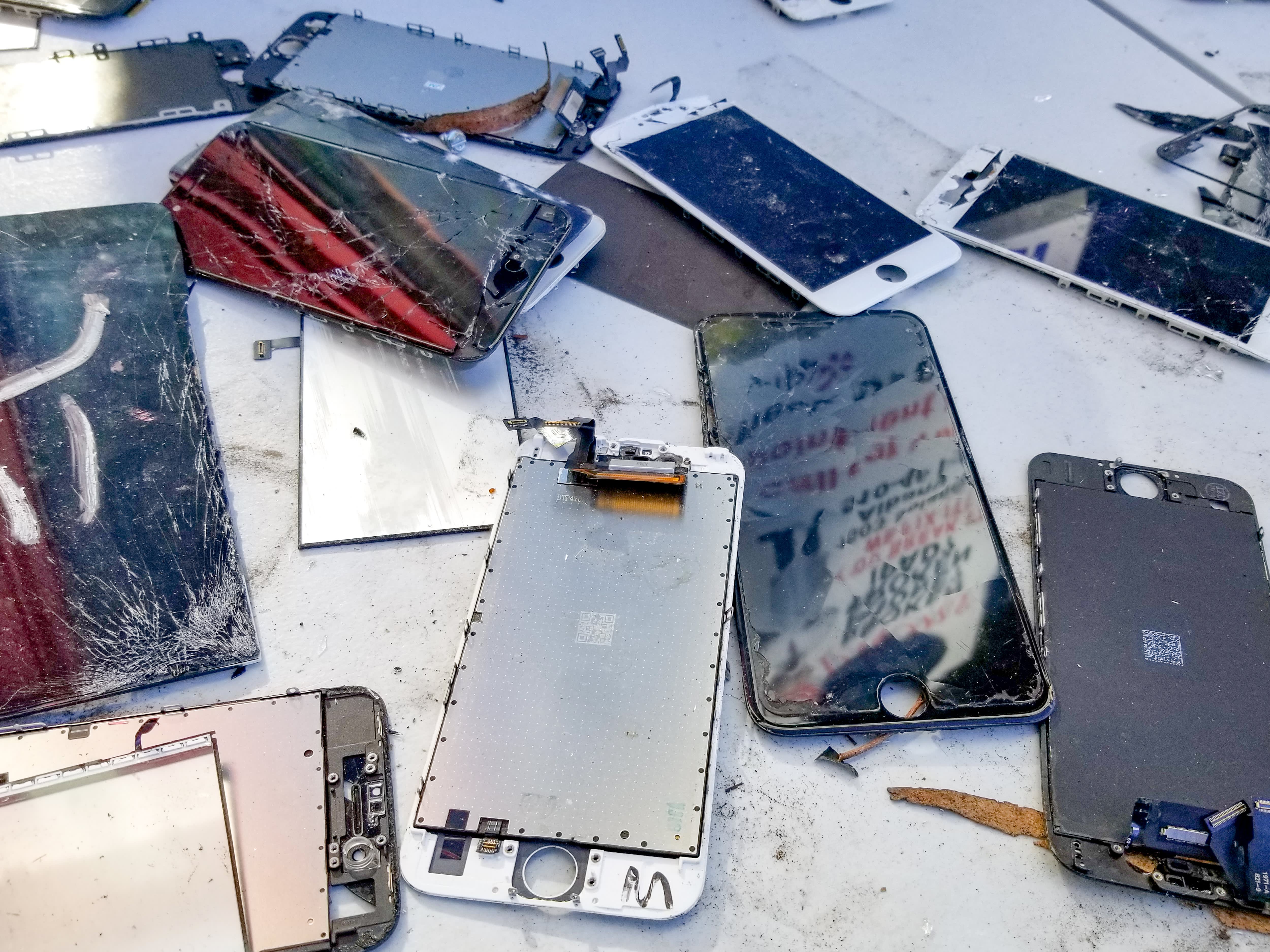
Cell phones, tablets, laptops, smartwatches: the modern world is packed with a dizzying array of gadgets that bring us connectivity, entertainment and information. Our hunger for the latest models – and the cachet that buying them brings – is such that these pieces of kit have, for some, become readily disposable.
This "throwaway" culture often means consumers are guilty of getting rid of old devices as soon as new ones come to the market, a habit that can have a significant effect on waste streams and the environment.
A recent report found that 53.6 million metric tons of e-waste was produced in 2019, with just 17.4% of this amount "officially documented as properly collected and recycled."
The Global E-waste Statistics Partnership published the "Global E-waste Monitor 2020" report in July and described e-waste as containing harmful substances including mercury, hydrochlorofluorocarbons, chlorofluorocarbons and brominated flame retardants.
It also painted a stark picture of the dangers posed by e-waste, stating: "The increasing levels of e-waste, low collection rates, and non-environmentally sound disposal and treatment of this waste stream pose significant risks to the environment and to human health."
With concerns about e-waste growing, some companies are now turning to chemistry to develop solutions to recycle items like old cell phones, extracting value at the same time.
One such example is the work being carried out by Mint Innovation, a clean tech firm based in Auckland, New Zealand.
"We've developed a biological process for recovering valuable metals from weird and wonderful feedstocks, such as electronic waste," Ollie Crush, the company's chief scientific officer, told CNBC's "Sustainable Energy."
Crush explained that Mint Innovation's system involved taking scrap material and "grinding it up into a sand like consistency."
"The reason we do this is that we need to make sure that we're exposing all the metal contained within to a subsequent chemical leaching process," he added.
"For instance, when you look at circuit boards, they've got lots of chips on them – a lot of the value is contained within those chips, so we really need to make sure it's exposed."
When it comes to recovering a valuable material like gold, the technique used by Mint Innovation – which it's described as a "biorefining process" – involves a number of steps.
According to a video on its website, chemicals dissolve the powdered waste into a solution, with any materials that haven't dissolved filtered out.
Microbes are then added to the mix. Gold atoms latch on to them in a process called "selective biosorption." Next, the microbes coated in gold are filtered, producing a paste which is ashed and then refined into solid, "recycled" gold.
Sustainable gold extraction
From a sustainability perspective, the importance of extracting gold from products already in circulation is more important than one might think.
"Nearly 50% of the value of e-waste comes from the gold that's used in the circuitry," Cameron Weber, a senior lecturer at the University of Auckland's School of Chemical Sciences, said.
"In fact, there's actually more gold in e-waste as a concentration than there is in gold ore that's been mined, which shows you the value of urban mining and being able to take … your e-waste and recycle and reuse some of the elements that are found in it," he added.
"And so coming up with methods for being able to separate and recycle those will be really critical."
Looking ahead, Mint Innovation's Crush explained the process developed by the company could potentially have a number of interesting applications.
"The future for Mint Innovation is to prove that our technology works with a number of different feedstocks," he said.
"We've already shown that it works with electronic scrap, and we're now beginning to research recovery in palladium and other metals from scrap automotive catalytic converters," he added, explaining that a wide range of potential "feedstocks" existed.
"So, we'll just keep trying to see where our microbial process makes more sense."
"Electronic" - Google News
October 02, 2020 at 02:49PM
https://ift.tt/30ttkVA
In New Zealand, microbes are extracting gold from electronic waste - CNBC
"Electronic" - Google News
https://ift.tt/3dmroCo
https://ift.tt/3bbj3jq
No comments:
Post a Comment